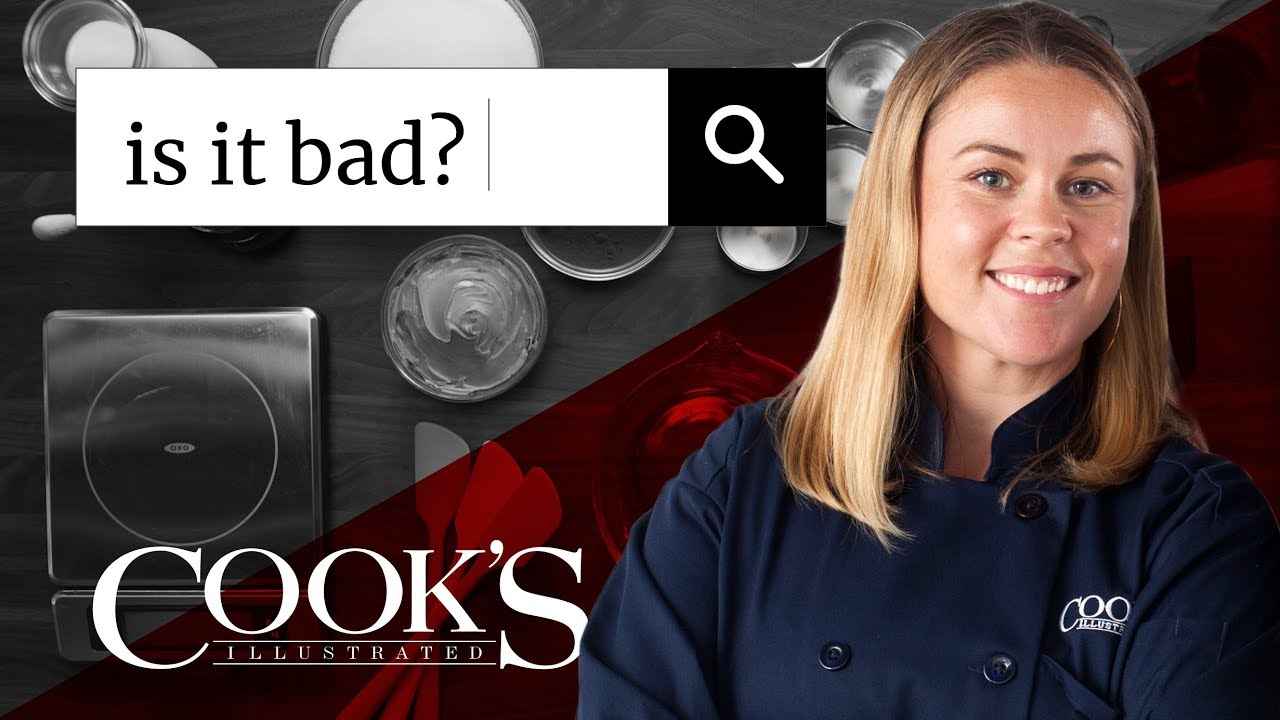Can you use liquid measuring cups for dry ingredients and vice versa? Hannah explains why this common cooking and baking practice can result in a failed recipe.
Buy Our Winning Dry Measuring Cups:
Buy Our Winning Liquid Measuring Cups:
Buy Our Winning Adjustable Measuring Cups:
Buy Our Winning Scale:
Follow Hannah on Instagram:
Watch more Is it Bad?
Check out our What’s Eating Dan? series:
ABOUT US: Located in Boston’s Seaport District in the historic Innovation and Design Building, America’s Test Kitchen features 15,000 square feet of kitchen space including multiple photography and video studios. It is the home of Cook’s Illustrated magazine and Cook’s Country magazine and is the workday destination for more than 60 test cooks, editors, and cookware specialists. Our mission is to test recipes over and over again until we understand how and why they work and until we arrive at the best version.
If you like us, follow us:
Related posts
22 Comments
Leave a Reply Cancel reply
You must be logged in to post a comment.


"Can be bad", but is the same. But the whole water tension thing on the dry measure cup was silly. Any idiot can see that the wet measuring cup with the flour was way too much. And the bit about the meniscus…if you are sweating this, you need to learn that Cooking is more about not being afraid than anything else.
I hate reading a recipe and there’s a million unit of measurements. Let’s just weight everything and be done with it.
Flour wasn't a very good item to test on
Human beings will find the 'easiest' way to measure things like flour – it's just the way we are. I think that's why many people still prefer using 'cups'. For some people such as myself, using kitchen scales is the easiest method. Messing about with filling a measuring cup the 'right way' i.e. fluff, spoon and level off is more trouble than it's worth, IMO – not to mention all cup filling methods are wildly variable. Unfortunately, so many recipes are published using 'cups' (with no mention of which size/type of cups were used). I've basically given up trying to convert any of them. Even some that supposedly have metric conversions can be inaccurate too – because 'a cup' of flour can weigh anything from 120 to 140-odd grams according to myriad search results on the 'net – and depending what the recipe author actually used is often anybody's guess.
How bad are you at measuring if you are off by 25%? I mean, for liquids, did you just keep pouring it in after it was full for a few more seconds? I am skeptical of these results much like when they taste tested hot sauces and clearly got Cholula and Tobasco mixed up.
Kitchen scales! Anybody? No?
Kitchen scales! Anybody? No?
Kitchen scales! Anybody? No?
Kitchen scales! Anybody? No?
what about measuring tablespoons via a cup setting on a digital scale ( by weight)?
Ive had to purchase dry cups to follow american recipes. I could use the scale but then i would have to convert everything!
When your scale shows when a fly lands on it, and when it takes off, you know you have the right scale. And you need to do something about the flies in the kitchen.
It's the bottom of the meniscus at the center.
If you want to UP your baking and ice cream game… Get a scale and get used to the metric system!!!!
if you advise weighing, why don't you provide your recipes with weight rather than volume measurements?
i am an American and i do Everything i can by metric weight. It is far more accurate…..ESPECIALLY for Baking !
Coarse dry ingredients such as white sugar or semolina can be levelled just fine by shaking the cup, but it takes more time. I find it convenient to prepare ingredients on the table in regular glass cups, as many as required. You probably wouldn't want to fill a dry cup to the rim with liquid and make a mess.
cup measuring is just a bad idea overall. the argument starts with kosher vs regular salt…
i tried correcting my friends this zmas eve by telling them it DOES make a difference using the wrong measuring cup and i got CUSSED OUT so thanks alot
i though you should measure from the lower meniscus in the case of water/ water like liquids; especially at those volumes
You used a scale to measure sugar? I thought one cup dry ingredients would not weigh the same as 8 oz liquid?
25%? Maybe like 2%.
My baking teacher taught me that to measure flour, you never "dip" the measuring cup!! You spoon the flour in the cup and THEN level it off with the back of the knife. When you dip the cup inside, you're packing some of the flour and it will not be as accurate.
Is it bad to use corn-kernel-based measuring systems such as pounds and inches at this day and age, as opposed to science-based ones such as grams, liters, and meters? This channel seems to be scientific enough, what do you think?
But wouldn't zeroing the scales every time affect the sensitivity of the scale? Also, for small scales, keeping heavy mixing bowls and weighing using them would damage the spring in the scale.